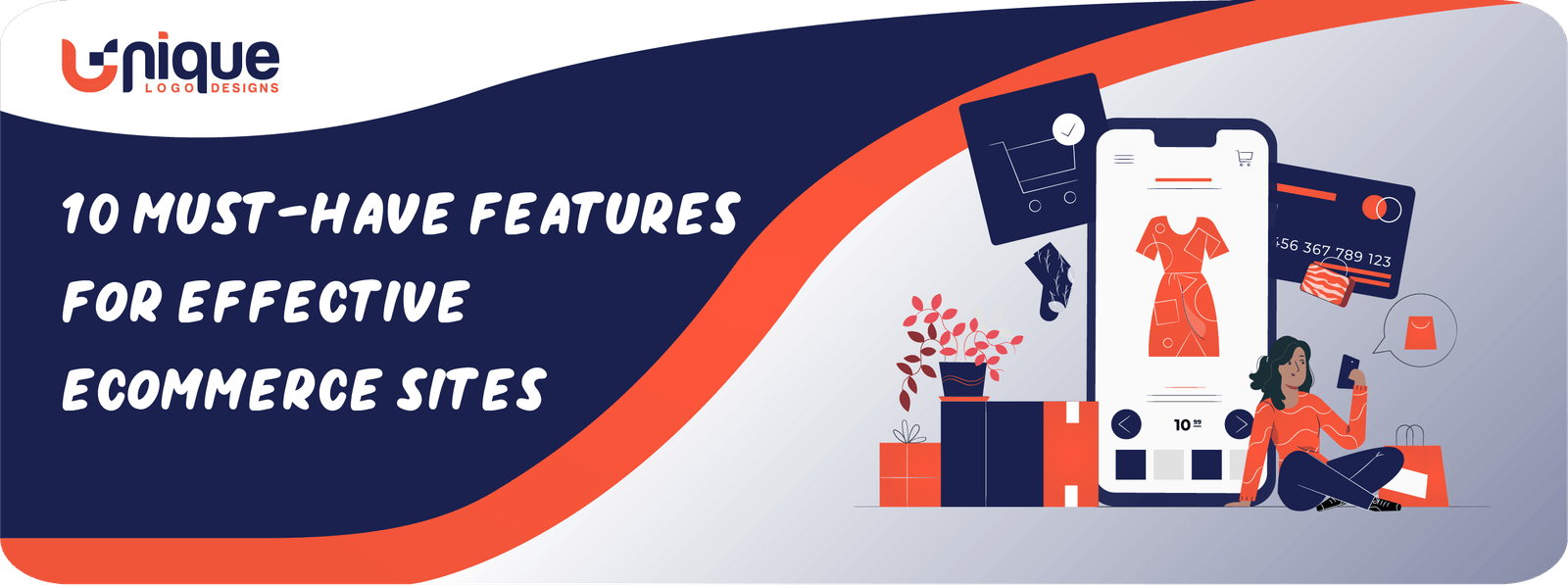10 Must-Have Features For Effective Ecommerce Sites

There was a time when people were hesitant to try their hands in online shopping. But the time has gone. Users, now, are more open to online shopping. With the growing fame of internet shopping, food companies and retailers are growing in the e-commerce site. Online shopping and shopping is gaining more popularity, and this is driving several professional web design service to improve e-commerce website designs.
Online competition is increasing as public demands and attitude change. To catch the people’s interest, you need an improved design of the e-Commerce website. Digital marketers believe all the current marketing strategies and important website features can give a positive start to your web store.
Let us focus on the important features that your e-commerce site should have so that you can win more customers for your business:
1. User-friendly
A large number of users claim that the most critical aspect of a website is the ease of access. The aim is to help shoppers get to their desired items quicker without getting into unnecessary confusion that can blur the path to purchase. Online retailers have minutes to make a deal. Concentrate on customer interface through the introduction of shopping groups, filtering, and compare functionality. Enhance search functionality with the autocomplete option and you can build visual navigation for effective browsing.
2. High-quality images
Customers would like to see various angles and customers using the items in different settings. They want to be able to zoom in and experience the commodity. Images that don’t load or take too long to load would see a customer downward trend. Multiple images of every product should be shown on Ecommerce websites. This gives you the opportunity to display the different angles of your products, and also the different options available. The images need to be high definition and optimized for page loading.
3. Related items
You would suggest an additional product when running a store. Implement the same concept to your online store. You should assist your customers by providing an e-commerce website that is equipped with tools for collecting valuable data. It is observed that after including the Related Items section, a large number of visitors decided to buy the item from the related item section.
4. Wish list
There are things people wouldn’t need right away. But they’d like to buy it later. Providing a bookmark feature or creating a wish list is a wise decision. The wish list enables buyers to recall the products they wanted to buy. By using the wish list feature you can not only provide better user ease of access but will also increase the possibility of return customers.
5. Special offers
Most e-commerce sites use special offers in their normal marketing practices via email, social, text, etc. Once customers notice they’re getting a special deal, they’re motivated to buy more and spend more time checking the site. If e-commerce sites use promotions and list down offers then it will drive more sales and improve SEO.
6. Advanced payment options
In the world of plastic money, advanced payment solutions are a necessary feature for an e-commerce platform. Shoppers with active accounts will simply buy from the comfort of their locations. There are a number of popular online payment options available. With the advent of incentives such as coupons, cashback, and coupons, consumers tend to use these payment types.
7. Reviews
An e-commerce website without reviews is a sales killer. Bad reviews can often be positive. Product lines without negative reviews are viewed as redacted and, instigate buyers to think that positive reviews are false. Modern e-commerce platforms use reviews as user-generated content to push social proof and attract followers.
8. Frequently Asked Questions (FAQ)
Difficult transactions involve satisfaction with the vendor and comprehensive details when ordering goods online. If an individual is about to order the item and there is no explanation from your support staff, the person may leave the website without purchasing it. A frequently asked question section provides confidence and establishes trust with the seller. FAQ pages also include a self-help field to address basic consumer concerns.
9. Detailed shipping information
Ecommerce websites must include shipping information early in the checkout process, also with a cost-showing ZIP code calculator. It is also useful to provide shipping time and alternatives for quicker delivery. Sites should list countries outside standard shipping areas. Please ensure that you provide free shipping codes on all pages of the site through the navigation header.
10. Return policy
Return policies are an important requirement for any e-commerce website. Your return policy should be easily visible and well explained. This is another element of online shopping that establishes credibility. It convinces buyers that if they are dissatisfied or just need an exchange, the brand will always be there for them.
Categories
- Business
- E-commerce Business
- Emails
- Graphic Design
- Infogrpahic
- Logo Design
- Social Media
- UI/UX Design
